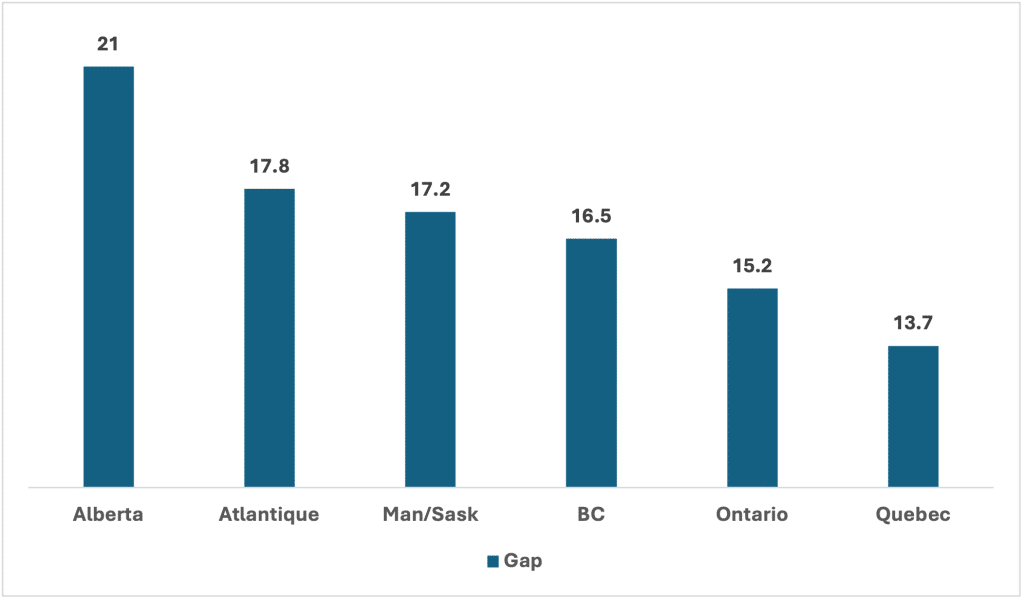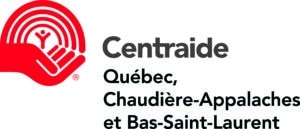The Quebec enigma!
12 Nov. / 2024
How to interpret this result without taking the easy way out?
Quebec is not only the province that rates its Humanity Index the most favorably (66.0), but it also shows the smallest gap between the individual and collective index (13.7 points). In other words, it is the province that appears most satisfied with its humanity—if we can talk about satisfaction with such a score.
Gap between Individual and Collective Humanity Index by Province

How should we interpret this data, especially since all Canadians, including Quebecers, rate their own level of humanity on roughly the same scale, with an individual index of about 76.3? It’s easy to get lost in conjectures. Some interpretations might easily conflict with others. The purpose of this article is neither to glorify nor to diminish anyone, but simply to open a discussion.
Three ways to interpretated the result
When reading this data, many questions immediately arise, starting with the first one: Is Quebec society indeed more humanistic, with its various social programs and their proverbial “joie de vivre”, or is this simply a cultural, identity-based, and defensive reflex that pushes Quebecers to see themselves as better than they really are?
Friendly complainers
Or, deep down, are Quebecers more satisfied with their society than their tendency to complain about everything and anything would suggest? A way of showing their teeth, but without scaring anyone. Let’s remember that, according to them (ref: Relative Happiness Index), their biggest flaw, by far, is that they are “complainers,” while their greatest quality is their warmth. In the end, they are friendly complainers. Little dogs that bark but don’t bite. So, could the noise of their complaints be a way of boosting their confidence? Could that noise be louder than what they truly feel, thus masking a certain satisfaction that they don’t want to display too openly, just to show their strength? Could this notion partially explain the results of the Humanity Index?
The Quebec Code
Perhaps the answer also lies in Quebecers’ tendency for consensus, their inclination to avoid dissonance between what they think they are and what they really are—one of the seven characteristics defining Quebecers, as identified by Jean-Marc Léger in his book Code Quebec. This consensual side might be what leads Quebecers to rate each of the 14 dimensions of the Humanity Index more positively than other Canadians, resulting in the highest score in the country.
In the end, the Quebec enigma probably finds its roots in these three major traits that define their personality. But even if we try to explain it further, we must remember that their perception will always remain their reality.



